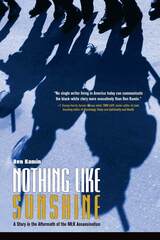
Rabbi Ben Kamin has written a definitive personal expression about race, coming of age in the 1960s, a forbidden friendship, and his personal love for Dr. Martin Luther King Jr. This is a story that spans a four-decade search for a lost high school chum, a deep misunderstanding, and a coming to terms with an America painfully evolving from the blood of MLK to the promise of Barack Obama.
The book is a remembrance of Kamin's life at Cincinnati's notorious Woodward High School, a microcosm of the 1960s and of America itself, as well as detailing Kamin's search-for Clifton, for America, for the key to understanding what race relations really are in the United States. Simultaneously, it is the story of the emerging rabbi's search for the legacy of his spiritual mentor, Dr. Martin Luther King Jr., taking Kamin from Cincinnati to Cleveland to Memphis to New Orleans and other points, and constantly bringing him home to his friend Clifton and "the heaving hallways" of that high school.
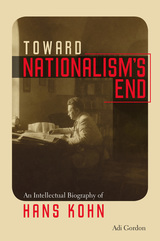
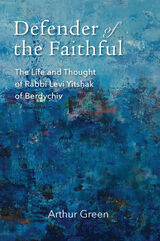
Defender of the Faithful explores the life and thought of Levi Yitshak of Berdychiv (1740–1809), one of the most fascinating and colorful Hasidic leaders of his time. This is an intellectual and religious biography, a reading of the development of his thought and career. Featuring examples of Levi Yitshak’s extraordinary texts alongside insightful analysis by scholar and theologian Arthur Green, Defender of the Faithful is a compelling study of both Levi Yitshak’s theology and broader philosophy.

This rich little volume, which substantively enhances our knowledge and appreciation of R. Moses Nahmanides, contains an introduction by Isadore Twersky and five original and learned articles by well-known scholars: David Berger, Brooklyn College ("Miracles and the Natural Order in Nahmanides"); Ezra Fleischer, The Hebrew University ("The 'Gerona School' of Hebrew Poetry"); Moshe Idel, The Hebrew University ("'We Have No Kabbalistic Tradition on This'"); Bezalel Safran, Harvard University ("Rabbi Azriel and Nahmanides: Two Views of the Fall of Man"); and Bernard Septimus, Harvard University ("'Open Rebuke and Concealed Love': Nahmanides and the Andalusian Tradition").
Ramban's attitude to aggadah, poetry, exegesis and rationalism, his coupling of genuine conservatism and powerful originality, his views on the nature of man, law of nature, miracles, history of kabbalah, dialectics of halakah, his relation to the Spanish intellectual-spiritual background, Proencal culture, and French Talmudism--these are some of the topics explored in these pages. In connection with these specific topics of Nahmanides research, some broader historical issues are also touched upon: continuities and differences between Islamic and Christian Spain; varieties of thirteenth-centurey kabbalah; preoccupations of medieval halakists; root problems of Scriptural exegesis; the re-orientation of Hebrew poetry in Christian Spain; the relation of philosophy and mysticism.
Anyone interested in the luminous achievement and enduring influence of Ramban, probably the greatest figure in 13th century Jewish history, will turn to this volume.
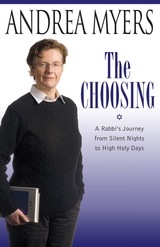
A young Lutheran girl grows up on Long Island, New York. She aspires to be a doctor, and is on the fast track to marriage and the conventional happily-ever-after. But, as the Yiddish saying goes, "Man plans, and God laughs." Meet Andrea Myers, whose coming-of-age at Brandeis, conversion to Judaism, and awakening sexual identity make for a rich and well-timed life in the rabbinate.
In The Choosing, Myers fuses heartwarming anecdotes with rabbinic insights and generous dollops of humor to describe what it means to survive and flourish on your own terms. Portioned around the cycle of the Jewish year, with stories connected to each of the holidays, Myers draws on her unique path to the rabbinate--leaving behind her Christian upbringing, coming out as a lesbian, discovering Judaism in college, moving to Israel, converting, and returning to New York to become a rabbi, partner, and parent.
Myers relates tales of new beginnings, of reinventing oneself, and finding oneself. Whether it's a Sicilian grandmother attempting to bake hamantaschen on Purim for her Jewish granddaughter, or an American in Jerusalem saving a chicken from slaughter during a Rosh Hashanah ritual, Myers keeps readers entertained as she reflects that spirituality, goodness, and morality can and do take many forms. Readers will enthusiastically embrace stories of doors closing and windows opening, of family and community, of integration and transformation. These captivating narratives will resonate and, in the author's words, "reach across coasts, continents, and generations."
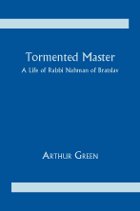
“If Hasidism begins in the life-enhancing spirituality of the Baal Shem Tov, it concludes in the tortuous, elitist and utterly fascinating career of Nahman of Bratslav (1722–1810) whose biography and teaching Arthur Green has set forth in his comprehensive, moving, and subtle study, Tormented Master.
“Arthur Green has managed to lead us through the thickets of the Bratslaver discourse with a grace and facility thus far unequaled in the English language literature on Hasidism. Tormented Master is a model of clarity and percipience, balancing awed respect and honor for its subject with a ruthless pursuit of documented truth. . . . Tormented Master is sufficiently open to the agonies of religion in general and the issues of modern religion in particular to make Nahman a thinker utterly relevant to our time.
“Nahman of Bratslav is unique in the history of Judaism, Green emphasizes, for having made the individual’s quest for intimacy with God the center of the religious way. He was a Kierkegaard before his time, believing in the utter abandon of the life of faith and the risk of paradoxicality. . . . He was, more than all others, the predecessor of Kafka, whose tales, like Nahman’s, have no explicit key and rankle, flush and irritate the spirit, compelling us—even in our failure to understand—to acknowledge their potency and challenge.”
—New York Times
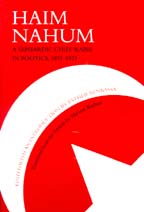
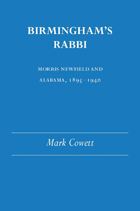
Taking a multidimensional approach, Cowett places Newfield's early life in the context of his Hungarian childhood and also relates Newfield’s career to those of fellow Hebrew Union College graduates and to national Reform Jewish history. The reader is made aware constantly of changing conditions in Birmingham, in Alabama, and in the south and how those changes affected Newfield’s congregants. Cowett illuminates Newfield’s efforts to help Jews maintain a sense of religious identity in a predominately Southern and Christian environment.
Based upon essential sources including interviews, newspapers, and manuscript collections in Alabama and at the American Jewish Archives in Cincinnati, Cowett shows Newfield’s struggle to support social welfare efforts in Alabama during the Progressive Era. He recognized the need for Jews to develop bonds with other American ethnic groups. Cowett portrays him as a mediator between not only Jew and Christian but also black and white, labor and capital, liberal and conservative—in short, within the full spectrum of political and social exchange in an industrial city of the New South.
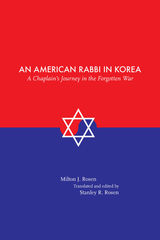
During the height of the Korean conflict, 1950–51, Orthodox Jewish chaplain Milton J. Rosen wrote 19 feature-length articles for Der Morgen Zhornal, a Yiddish daily in New York, documenting his wartime experiences as well as those of the servicemen under his care. An American Rabbi in Korea is an English translation of Rosen's important articles prepared by his son and annotated with background about Rosen's military service, a general introduction to the war and conflict on the Korean peninsula, and numerous maps and photographs.
Rosen was among those nearly caught in the Chinese entrapment of American and Allied forces in North Korea in late 1950, and some of his most poignant writing details the trying circumstances that faced both soldiers and civilians during that time. As chaplain, Rosen was able to offer a unique account of the American Jewish experience on the frontlines and in the United States military while also describing the impact of the American presence on Korean citizens and their culture. His interest in Korean attitudes toward Jews is also a significant theme within these articles. The sum is a readable account of war and its turmoil from an astute and compassionate observer.
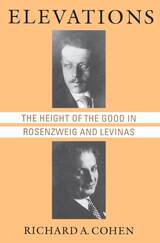
Cohen also explores the ethical philosophy of these two thinkers in relation to Nietzsche, Husserl, Heidegger, Buber, Sartre, and Derrida. The result is one of the most wide-ranging and lucid studies yet written on these crucial figures in philosophy and Jewish thought.

For decades, Gershom Scholem kept these diaries locked away, returning to them only to refresh his memory of past events and eloquent observations. They remained unread by others until the meticulously edited German edition of this book appeared in 2002.
Lamentations of Youth gives insight into a crucial stage in Scholem's life, beginning when he was a student in Berlin during the First World War, a time of incubation and growth for his later ideas. Much of the journal writing, however, took place in Switzerland, a magnet for radical artists, socialist intellectuals, and revolutionaries fleeing war. The diaries are where Scholem forges his anarchic orthodoxy, and where he chronicles his intense relationship with Walter Benjamin. Many entries have the crisp quality of literary aphorisms crafted in the great German tradition of Kafka and Canetti.
For Scholem and Benjamin, the time they spent together in Switzerland spawned an astoundingly original view of literary criticism, interpretation, and cultural transmission. More personally, the themes of friendship, love, and heartbreak that dominate these pages later reemerge in Scholem's scholarship. No longer is the inner life of the critic seen as distinct from his textual criticism--they are deeply and esoterically intertwined.

Perhaps the greatest scholar of Jewish mysticism in the twentieth century, Gershom Scholem (1897–1982) once said of himself, “I have no biography, only a bibliography.” Yet, in thousands of letters written over his lifetime, his biography does unfold, inscribing a life that epitomized the intellectual ferment and political drama of an era. This selection of the best and most representative letters—drawn from the 3000 page German edition—gives readers an intimate view of this remarkable man, from his troubled family life in Germany to his emergence as one of the leading lights of Israel during its founding and formative years.
In the letters, we witness the travails and vicissitudes of the Scholem family, a drama in which Gershom is banished by his father for his anti-kaiser Zionist sentiments; his antiwar, socialist brother is hounded and murdered; and his mother and remaining brothers are forced to emigrate. We see Scholem’s friendships with some of the most intriguing intellectuals of the twentieth century—such as Hannah Arendt, Walter Benjamin, and Theodor Adorno—blossom and, on occasion, wither. And we learn firsthand about his Zionist commitment and his scholarly career, from his move to Palestine in the 1920s to his work as Professor of Jewish Mysticism at the Hebrew University. Over the course of seven decades that comprised the most significant events of the twentieth century, these letters reveal how Scholem’s scholarship is informed by the experiences he so eloquently described.
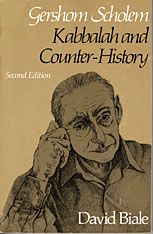
Through a lifetime of passionate scholarship, Gershom Scholem (1897–1982) uncovered the “domains of tradition hidden under the debris of centuries” and made the history of Jewish mysticism and messianism comprehensible and relevant to current Jewish thought.
In this paperback edition of his definitive book on Scholem’s work, David Biale has shortened and rearranged his study for the benefit of the general reader and the student. A new introduction and new passages in the main text highlight the pluralistic character of Jewish theology as seen by Scholem, the place of the Kabbalah in debates over Zionism versus assimilation, and the interpretation of Kafka as a Jewish writer.
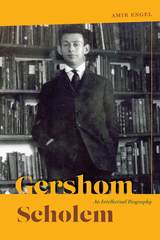
As Engel shows, in his search for the truth of Jewish mysticism Scholem molded the vast literature of Jewish mystical lore into a rich assortment of stories that unveiled new truths about the modern condition. Positioning Scholem’s work and life within early twentieth-century Germany, Palestine, and later the state of Israel, Engel intertwines Scholem’s biography with his historiographical work, which stretches back to the Spanish expulsion of Jews in 1492, through the lives of Rabbi Isaac Luria and Sabbatai Zevi, and up to Hasidism and the dawn of the Zionist movement. Through parallel narratives, Engel touches on a wide array of important topics including immigration, exile, Zionism, World War One, and the creation of the state of Israel, ultimately telling the story of the realizations—and failures—of a dream for a modern Jewish existence.
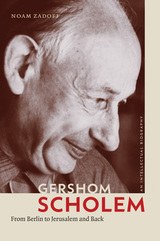
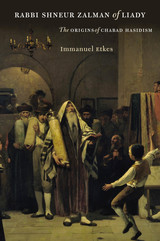
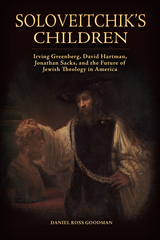
A revealing account of the three main disciples of Rabbi Joseph B. Soloveitchik, an essential figure in Orthodox Judaism in America
Orthodox Judaism is one of the fastest-growing religious communities in contemporary American life. Anyone who wishes to understand more about Judaism in America will need to consider the tenets and practices of Orthodox Judaism: who its adherents are, what they believe in, what motivates them, and to whom they turn for moral, intellectual, and spiritual guidance.
Among those spiritual leaders none looms larger than Rabbi Joseph B. Soloveitchik, heir to the legendary Talmudic dynasty of Brisk and a teacher and ordainer of thousands of rabbis during his time as a Talmud teacher at Yeshiva University from the Second World War until the 1980s. Soloveitchik was not only a Talmudic authority but a scholar of Western philosophy. While many books and articles have been written about Soloveitchik’s legacy and his influence on American Orthodoxy, few have looked carefully at his disciples in Torah and Talmud study, and even fewer at his disciples in Jewish thought and philosophy.
Soloveitchik’s Children: Irving Greenberg, David Hartman, Jonathan Sacks, and the Future of Jewish Theology in America is the first book to study closely three of Soloveitchik’s major disciples in Jewish thought and philosophy: Rabbis Irving (“Yitz”) Greenberg, David Hartman, and Jonathan Sacks. Daniel Ross Goodman narrates how each of these three major modern Jewish thinkers learned from and adapted Soloveitchik’s teachings in their own ways, even while advancing his philosophical and theological legacy.
The story of religious life and Judaism in contemporary America is incomplete without an understanding of how three of the most consequential Jewish thinkers of this generation adapted the teachings of one of the most consequential Jewish thinkers of the previous generation. Soloveitchik’s Children tells this gripping intellectual and religious story in a learned and engaging manner, shining a light on where Jewish religious thought in the United States currently stands—and where it may be heading in future generations.
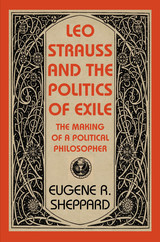
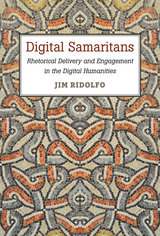
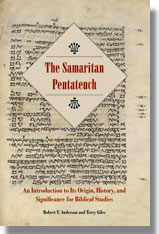

Daily political events and the steady inevitability of globalism require that informed students and citizens learn something about religious traditions foreign to their own. Designed for both classroom and general use, these handy Key Words guidebooks are essential resources for those who want clear and concise explanations of common terms and unfamiliar concepts of major world religions.
Each pocket-sized volume contains definitions for over 400 terms from religious principles and significant periods to noteworthy figures.
A quick sampling of terms from this volume:
AhwalDa'waHajjIzzatMadrasaRamadanShari'aWatanZakat
Sample Definitions:
Izzat (Urdu) The concept of honour or family pride. Izzat functions as an eclectic mixture of Islamic codes and local customs which the family members are expected to observe. Non-observance leads to disgrace for the individual and the family.
Ramadan/Ramazan (U) The ninth month of the Muslim year which is observed as a fast lasting from sunrise to sunset. The fast is one of the five pillars of Islam and during this period Muslims should abstain from food, water and sexual activity. The fast is commanded by Allah in the Qur'an and is therefore obligatory for all adult Muslims except in special circumstances such as illness or menstruation. In such circumstances it is permissible to make up the period of the fast at a later date. The period of Ramadan includes some of the holiest occasions of the Muslim year such as the Night of Power that marks the first revelation of the Qur'an to Muhammad. The fast ends with the festival of Eid al-Fitr. The month of Ramadan is a period of extra religious sensitivity and many Muslims who are not usually observant will attend the mosque and perform their prayers five times a day. The fast provides an opportunity to reflect on religious matters and pass a month in prayer but is also considered to be a means of creating empathy for the poor and needy in the community (see itikaf, Eid al-Fitr, Laylat ul-Qadr).

The Internet is an increasingly important source of information for many people in the Muslim world. Many Muslims in majority and minority contexts rely on the Internet -- including websites and e-mail -- as a primary source of news, information and communication about Islam. As a result, a new media culture is emerging which is having a significant impact on areas of global Muslim consciousness. Post-September 11th, this phenomenon has grown more rapidly than ever.
Gary R. Bunt provides a fascinating account of the issues at stake, identifying two radical new concepts:
Firstly, the emergence of e-jihad ('Electronic Jihad') originating from diverse Muslim perspectives -- this is described in its many forms relating to the different definitions of 'jihad', including on-line activism (ranging from promoting militaristic activities to hacking, to co-ordinating peaceful protests) and Muslim expression post 9/11.
Secondly, he discusses religious authority on the Internet -- including the concept of on-line fatwas and their influence in diverse settings, and the complexities of conflicting notions of religious authority.

The study of Islam has historically been approached in two different ways: apologetical and polemical. The former focuses on the preservation and propagation of religious teachings, and the latter on the attempt to undermine the tradition. The dialectic between these two approaches continued into the Enlightenment, and the tension between them still exists today. What is new in the modern period, however, is the introduction of a third approach, the academic one, which ostensibly examines the tradition in diverse historical, religious, legal, intellectual, and philosophical contexts. Classical Islamic subjects (e.g., Qur’ān, ḥadīth, fiqh, tafsīr) are now studied using a combination of the apologetical, the polemical, and the academic approaches. Depending upon the historical period and the institutional context, these classical topics have been accepted (apologetical), have had their truth claims undermined (polemical), or have simply been taken for granted (academic).
This volume, comprising chapters by leading experts, deconstructs the ways in which classical Muslim scholarship has structured (and, indeed, continues to structure) the modern study of Islam. It explores how classical subjects have been approached traditionally, theologically, and secularly, in addition to examining some of the tensions inherent in these approaches.
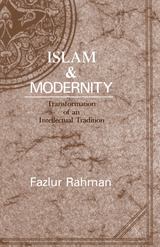
"In this work, Professor Fazlur Rahman presents a positively ambitious blueprint for the transformation of the intellectual tradition of Islam: theology, ethics, philosophy and jurisprudence. Over the voices advocating a return to Islam or the reestablishment of the Sharia, the guide for action, he astutely and soberly asks: What and which Islam? More importantly, how does one get to 'normative' Islam? The author counsels, and passionately demonstrates, that for Islam to be actually what Muslims claim it to be—comprehensive in scope and efficacious for every age and place—Muslim scholars and educationists must reevaluate their methodology and hermeneutics. In spelling out the necessary and sound methodology, he is at once courageous, serious and profound."—Wadi Z. Haddad, American-Arab Affairs
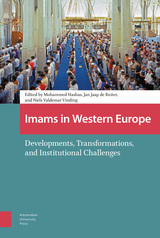
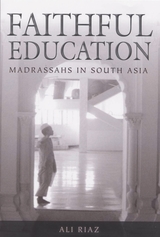
Ali Riaz responds to these questions through an in-depth examination of the madraassahs in Pakistan, Bangladesh, and India. In Faithful Education, he examines these institutions and their roles in relation to current international politics.
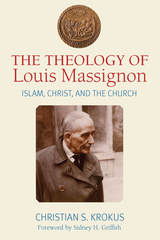
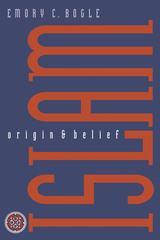
Islam is the fastest-growing religion in the world today. An understanding of its beliefs and practices has become essential knowledge not only for religious and political leaders but also for ordinary citizens who increasingly interact with Muslims as neighbors, coworkers, and schoolmates.
This book is designed to offer the general public a concise overview of the origins, basic beliefs, and common practices of Islam, as well as the reasons for its dramatic resurgence in recent times. Emory Bogle details the life mission of the prophet Muhammad and describes the spread of Islam after his death. He accounts for the rise and contemporary influence of Shi'i Islam, a topic of particular interest to Western readers. Bogle also explains the basic beliefs ("The Five Pillars") of Islam, as well as the role played by the Qur'an (Islam's scriptures), the hadith (the words and behavior of Muhammad), and the shari'a (Islamic law).
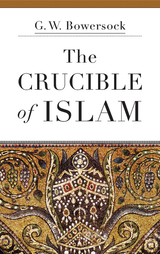
Little is known about Arabia in the sixth century, yet from this distant time and place emerged a faith and an empire that stretched from the Iberian peninsula to India. Today, Muslims account for nearly a quarter of the global population. A renowned classicist, G. W. Bowersock seeks to illuminate this obscure and dynamic period in the history of Islam—exploring why arid Arabia proved to be such fertile ground for Muhammad’s prophetic message, and why that message spread so quickly to the wider world. The Crucible of Islam offers a compelling explanation of how one of the world’s great religions took shape.
“A remarkable work of scholarship.”
—Wall Street Journal
“A little book of explosive originality and penetrating judgment… The joy of reading this account of the background and emergence of early Islam is the knowledge that Bowersock has built it from solid stones… A masterpiece of the historian’s craft.”
—Peter Brown, New York Review of Books
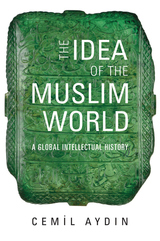
“Superb… A tour de force.”
—Ebrahim Moosa
“Provocative… Aydin ranges over the centuries to show the relative novelty of the idea of a Muslim world and the relentless efforts to exploit that idea for political ends.”
—Washington Post
When President Obama visited Cairo to address Muslims worldwide, he followed in the footsteps of countless politicians who have taken the existence of a unified global Muslim community for granted. But as Cemil Aydin explains in this provocative history, it is a misconception to think that the world’s 1.5 billion Muslims constitute a single entity. How did this belief arise, and why is it so widespread? The Idea of the Muslim World considers its origins and reveals the consequences of its enduring allure.
“Much of today’s media commentary traces current trouble in the Middle East back to the emergence of ‘artificial’ nation states after the fall of the Ottoman Empire… According to this narrative…today’s unrest is simply a belated product of that mistake. The Idea of the Muslim World is a bracing rebuke to such simplistic conclusions.”
—Times Literary Supplement
“It is here that Aydin’s book proves so valuable: by revealing how the racial, civilizational, and political biases that emerged in the nineteenth century shape contemporary visions of the Muslim world.”
—Foreign Affairs
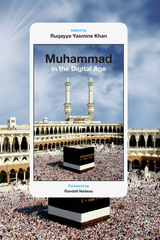
The early twenty-first century has experienced an unrivaled dissemination of information and misinformation about Islam, its prophet Muhammad, and its followers, largely facilitated by the fact that the tragedy of 9/11 roughly coincided with the advent of the digital age. In the first collection of its kind, Ruqayya Khan has compiled essays that treat Muhammad and the core elements of Islam as focal points in an exploration of how the digital era—including social media and other expressions—have both had an effect on and been affected by Islam.
Scholars from a variety of fields deal with topics such as the 2005 cartoon controversy in Denmark and the infamous 2012 movie trailer “Innocence of Muslims” that some believe sparked the attacks on the US consulate in Benghazi, as well as how the digitization of ancient texts have allowed the origins of Islam to be studied in new ways. Other essays examine how Muhammad’s wives have been represented in various online sources, including a web comic; the contrasting depictions of Muhammad as both a warrior and peacemaker; and how the widespread distribution of “the look” of Islamic terrorists has led to attacks on Sikhs, whose only point of resemblance to them may be a full beard. These findings illuminate the role of the Internet in forms of representation, advocacy, and engagement concerning Islam and Muslims in our world today.
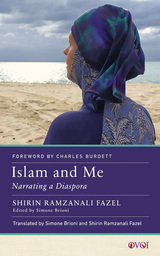
In Islam and Me, Fazel tells her story and shares the experiences of other Muslim women living in Italy, revealing the wide variety of Muslim identities and the common prejudices they encounter. Looking at Italian school textbooks, newspapers, and TV programs, she invites us to change the way Muslim immigrants, and especially women, are depicted in both news reports and scholarly research. Islam and Me is a meditation on our multireligious, multiethnic, and multilingual reality, as well as an exploration of how we might reimagine national culture and identity so that they become more diverse, inclusive, and anti-racist.
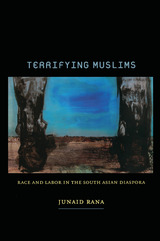
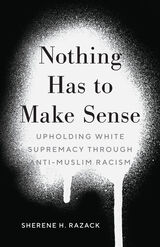
How Western nations have consolidated their whiteness through the figure of the Muslim in the post-9/11 world
While much has been written about post-9/11 anti-Muslim racism (often termed Islamophobia), insufficient attention has been given to how anti-Muslim racism operates through law and is a vital part of law’s protection of whiteness. This book fills this gap while also providing a unique new global perspective on white supremacy. Sherene H. Razack, a leading critical race and feminist scholar, takes an innovative approach by situating law within media discourses and historical and contemporary realities. We may think of law as logical, but, argues Razack, its logic breaks down when the subject is Muslim.
Tracing how white subjects and majority-white nations in the post-9/11 era have consolidated their whiteness through the figure of the Muslim, Razack examines four sites of anti-Muslim racism: efforts by American evangelical Christians to ban Islam in the school curriculum; Canadian and European bans on Muslim women’s clothing; racial science and the sentencing of Muslims as terrorists; and American national memory of the torture of Muslims during wars and occupations. Arguing that nothing has to make sense when the subject is Muslim, she maintains that these legal and cultural sites reveal the dread, phobia, hysteria, and desire that mark the encounter between Muslims and the West.
Through the prism of racism, Nothing Has to Make Sense argues that the figure of the Muslim reveals a world divided between the deserving and the disposable, where people of European origin are the former and all others are confined in various ways to regimes of disposability. Emerging from critical race theory, and bridging with Islamophobia/critical religious studies, it demonstrates that anti-Muslim racism is a revelatory window into the operation of white supremacy as a global force.
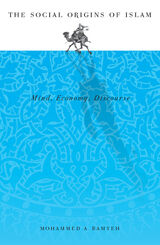
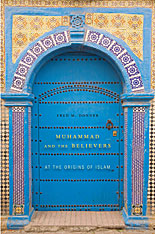
The origins of Islam have been the subject of increasing controversy in recent years. The traditional view, which presents Islam as a self-consciously distinct religion tied to the life and revelations of the prophet Muhammad in western Arabia, has since the 1970s been challenged by historians engaged in critical study of the Muslim sources.
In Muhammad and the Believers, the eminent historian Fred Donner offers a lucid and original vision of how Islam first evolved. He argues that the origins of Islam lie in what we may call the "Believers' movement" begun by the prophet Muhammad—a movement of religious reform emphasizing strict monotheism and righteous behavior in conformity with God's revealed law. The Believers' movement thus included righteous Christians and Jews in its early years, because like the Qur'anic Believers, Christians and Jews were monotheists and agreed to live righteously in obedience to their revealed law. The conviction that Muslims constituted a separate religious community, utterly distinct from Christians and Jews, emerged a century later, when the leaders of the Believers' movement decided that only those who saw the Qur'an as the final revelation of the One God and Muhammad as the final prophet, qualified as Believers. This separated them decisively from monotheists who adhered to the Gospels or Torah.
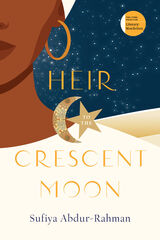
In Heir to the Crescent Moon, Abdur-Rahman’s longing to comprehend her father’s complicated relationship with Islam leads her first to recount her own history, and then delves into her father’s past. She journeys from the Christian righteousness of Adam Clayton Powell Jr.’s 1950s Harlem, through the Malcolm X–inspired college activism of the late 1960s, to the unfulfilled potential of the early 1970s Black American Muslim movement. Told at times with lighthearted humor or heartbreaking candor, Abdur-Rahman’s story of adolescent Arabic lessons, fasting, and Muslim mosque, funeral, and Eid services speaks to the challenges of bridging generational and cultural divides and what it takes to maintain family amidst personal and societal upheaval. She weaves a vital tale about a family: Black, Muslim, and distinctly American.
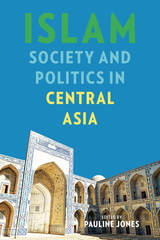
The chapters provide analysis through four distinct categories: the everyday practice of Islam across local communities; state policies toward Islam, focusing on attempts to regulate public and private practice through cultural, legal, and political institutions and how these differ from Soviet policies; how religious actors influence communities in the practice of Islam, state policies towards the religion, and subsequent communal responses to state regulations; and how knowledge of and interaction with the larger Islamic world is shaping Central Asia’s current Islamic revival and state responses.
The contributors, a multidisciplinary and international group of leading scholars, develop fresh insights that both corroborate and contradict findings from previous research, while also highlighting the problem of making any generalizations about Islam in individual states or the region. As such, this volume provides new and impactful analysis for scholars, students, and policy makers concerned with Central Asia.
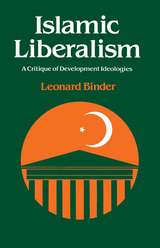
The Islamic political community presents special problems to the development of an indigenous liberalism. That community is conceived of as divinely ordained, and its notions of the good are to be derived from scriptural revelation, not arrived at through rational discourse. Liberal politics would seem to stand little chance of surviving in such an atmosphere, let alone thriving.
Binder responds to the challenge of Edward Said's critique of Orientalism, of a range of neo-Marxian development theorists, of Sayyid Qutb's fundamentalist vision, of Samir Amin's vision of Egypt's role in the Arab awakening, of Tariq al-Bishri's new populism, of Zaki Najib Mahmud's pragmatism, and the structuralism of Arkoun and Laroui. The deconstruction of these varied texts produces a number of persuasive hermeneutical conclusions that are sequentially woven together in a critical argument that refocuses our attention on the central question of political freedom and democracy. In the course of constructing this argument, Binder reopens the dialogue between Western modernity and Islamic authenticity and reveals the surprising extent to which there is a convergent interest in liberal, democratic, civil society. Finally, in a concluding chapter, he addresses the prospects for liberalism in the three major bourgeois states of Islam—Egypt, Turkey, and Iran.

This book documents an Islamic–Confucian school of scholarship that flourished, mostly in the Yangzi Delta, in the seventeenth and eighteenth centuries. Drawing on previously unstudied materials, it reconstructs the network of Muslim scholars responsible for the creation and circulation of a large corpus of Chinese Islamic written material—the so-called Han Kitab. Against the backdrop of the rise of the Manchu Qing dynasty, The Dao of Muhammad shows how the creation of this corpus, and of the scholarly network that supported it, arose in a context of intense dialogue between Muslim scholars, their Confucian social context, and China’s imperial rulers.
Overturning the idea that participation in Confucian culture necessitated the obliteration of all other identities, this book offers insight into the world of a group of scholars who felt that their study of the Islamic classics constituted a rightful “school” within the Confucian intellectual landscape. These men were not the first Muslims to master the Chinese Classics. But they were the first to express themselves specifically as Chinese Muslims and to generate foundation myths that made sense of their place both within Islam and within Chinese culture.
READERS
Browse our collection.
PUBLISHERS
See BiblioVault's publisher services.
STUDENT SERVICES
Files for college accessibility offices.
UChicago Accessibility Resources
home | accessibility | search | about | contact us
BiblioVault ® 2001 - 2024
The University of Chicago Press









